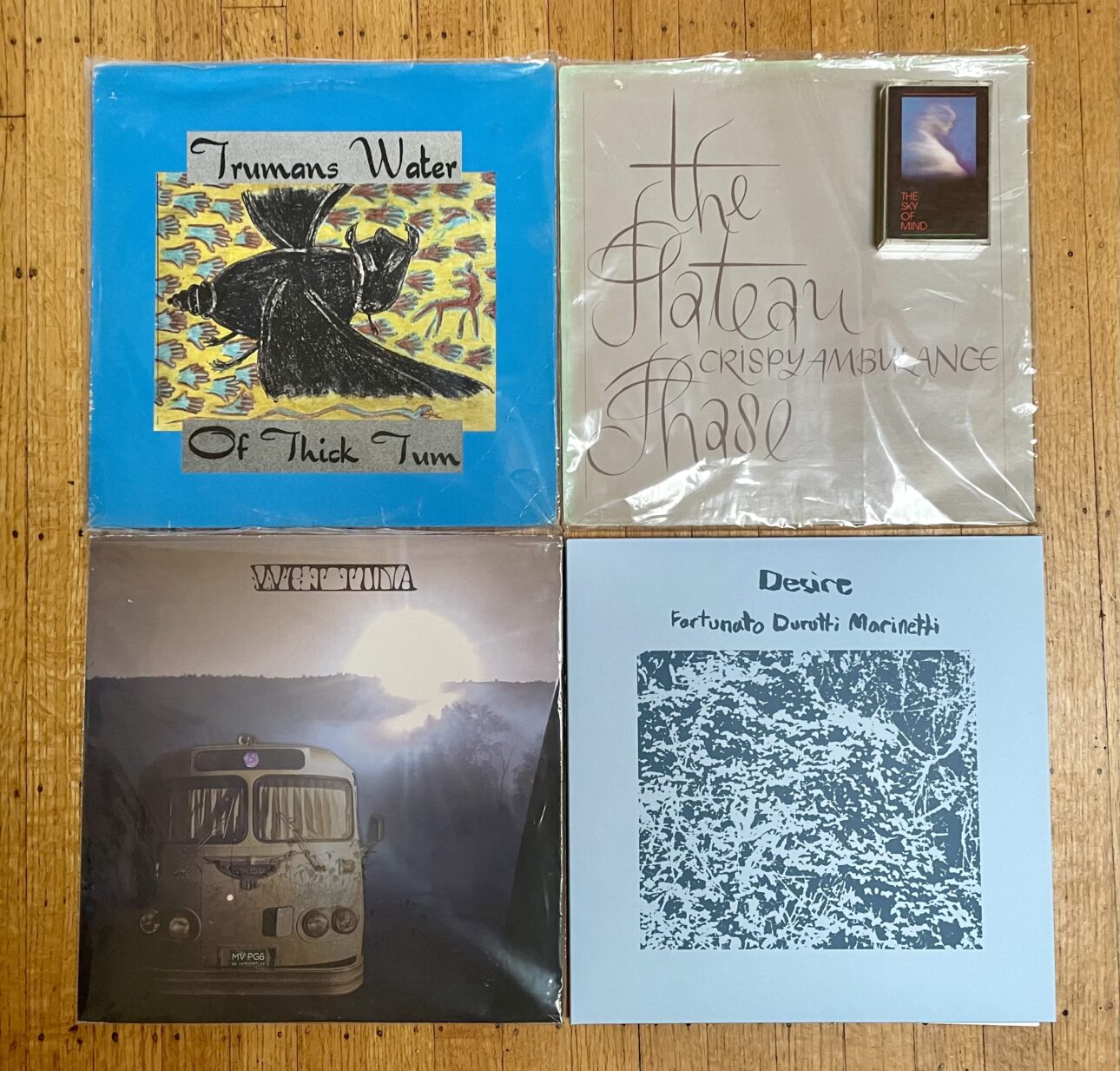“Our aim is to carry left-field and largely non-mainstream music we feel deserves a larger audience,” says Jeff Knowlton, co-owner of Vancouver’s Dandelion Records. “We hear the word curation often, but in reality we’re just trying to get the best stuff out there in every genre and sell it as cheaply as we can without going under.”
Staying afloat is the name of the game for Dandelion. It’s a bit of a treasure hunt to find the shop’s current location in Vancouver’s Chinatown district, but after stepping through the unmarked doors of a shopping mall at 288 East Georgia Street—past medical clinics, vintage clothing stores, and BBQ ducks—I’m greeted by crates filled with vinyl. The sad news of Damo Suzuki’s death that morning prompted Dandelion’s owners to put Can’s albums on the shelves behind the counter, right next to Soul Jazz’s Studio One reggae compilations and Canadian artists like Magneticring and Fortunato Durutti Marinetti. Needless to say, there’s plenty of music here that you won’t find anywhere else.
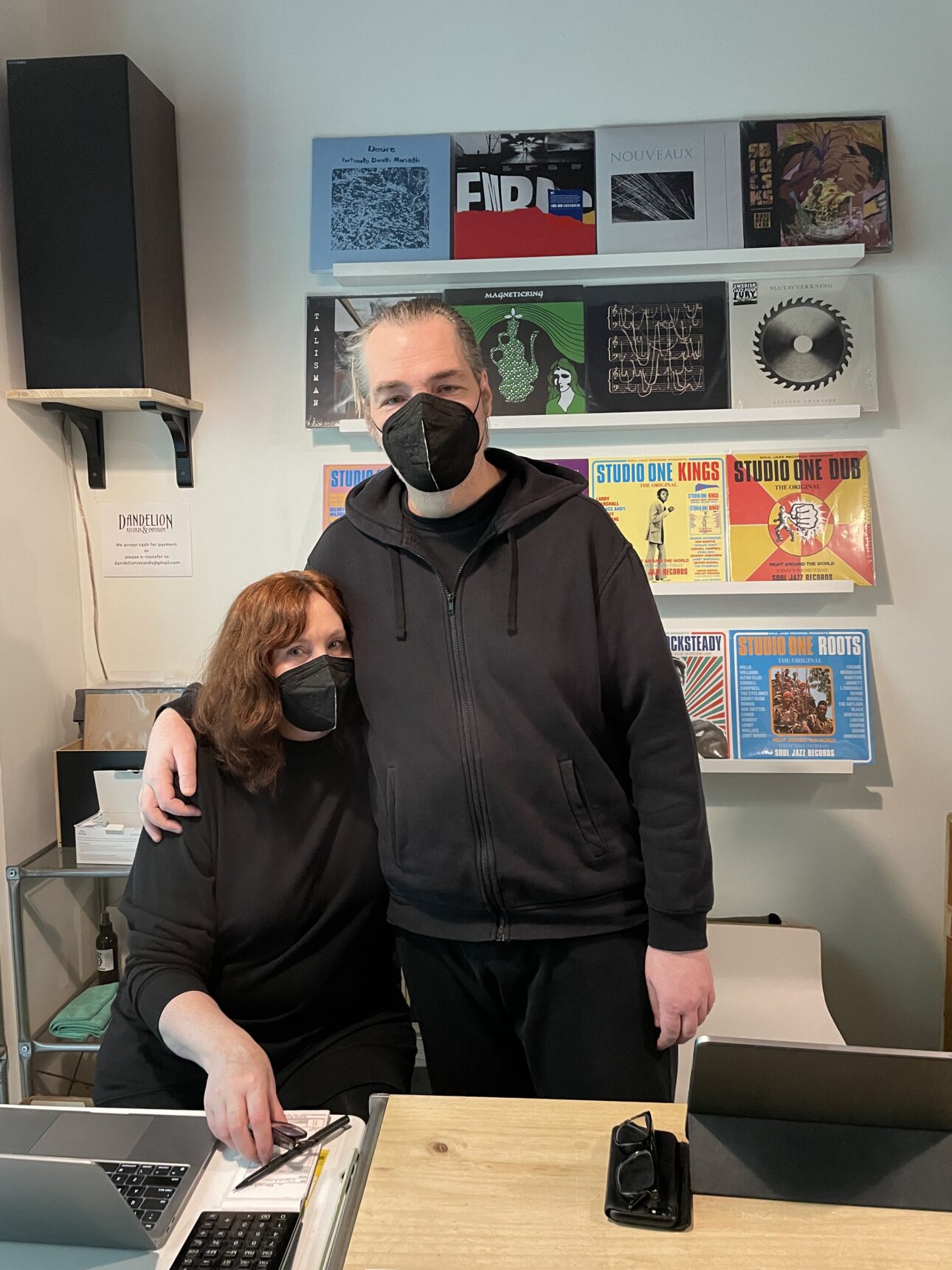

Knowlton first met his partner Laura Frederick while living in Victoria. After moving to Vancouver in 2006, he began selling records at the city’s beloved “big red barn” flea market. The following year, Knowlton and Frederick opened their shop’s original location in the basement of a shared space on Kingsway, now part of Budgie’s Burritos. In 2008, the duo launched Dandelion Records & Emporium at 2442 Main Street, where they stayed for over 15 years—until an October 2020 fire destroyed the building.
Dandelion’s current location is a lot smaller, but there’s not an inch of wasted space. New releases from labels like Music from Memory and International Anthem are filed alongside reissues from Bauhaus and Betty Davis, right next to stacks of new age cassettes. Upstairs, every used or slightly damaged record costs $10. At that price, I can take Knowlton’s recommendations for LPs by San Diego indie-rockers Truman’s Water and British post-punk band Crispy Ambulance, both of which I’ve never heard before—flashing back to life before streaming, when buying music blind was part of the fun.
Famous people have visited Dandelion—Parker Posey, Andy Samberg, and Keiji Haino, to name a few—but Knowles says, “I sometimes don’t notice until someone mentions it, honestly. The cult of celebrity leaves me a bit cold.” A lifelong passion for musical discovery, alongside plans to transform their $10 record room into a live performance space, are the fires that keep Dandelion burning. “The future is always uncertain,” says Knowles, “but we’re continuing to expand our selection of records to reach as many people as possible.”
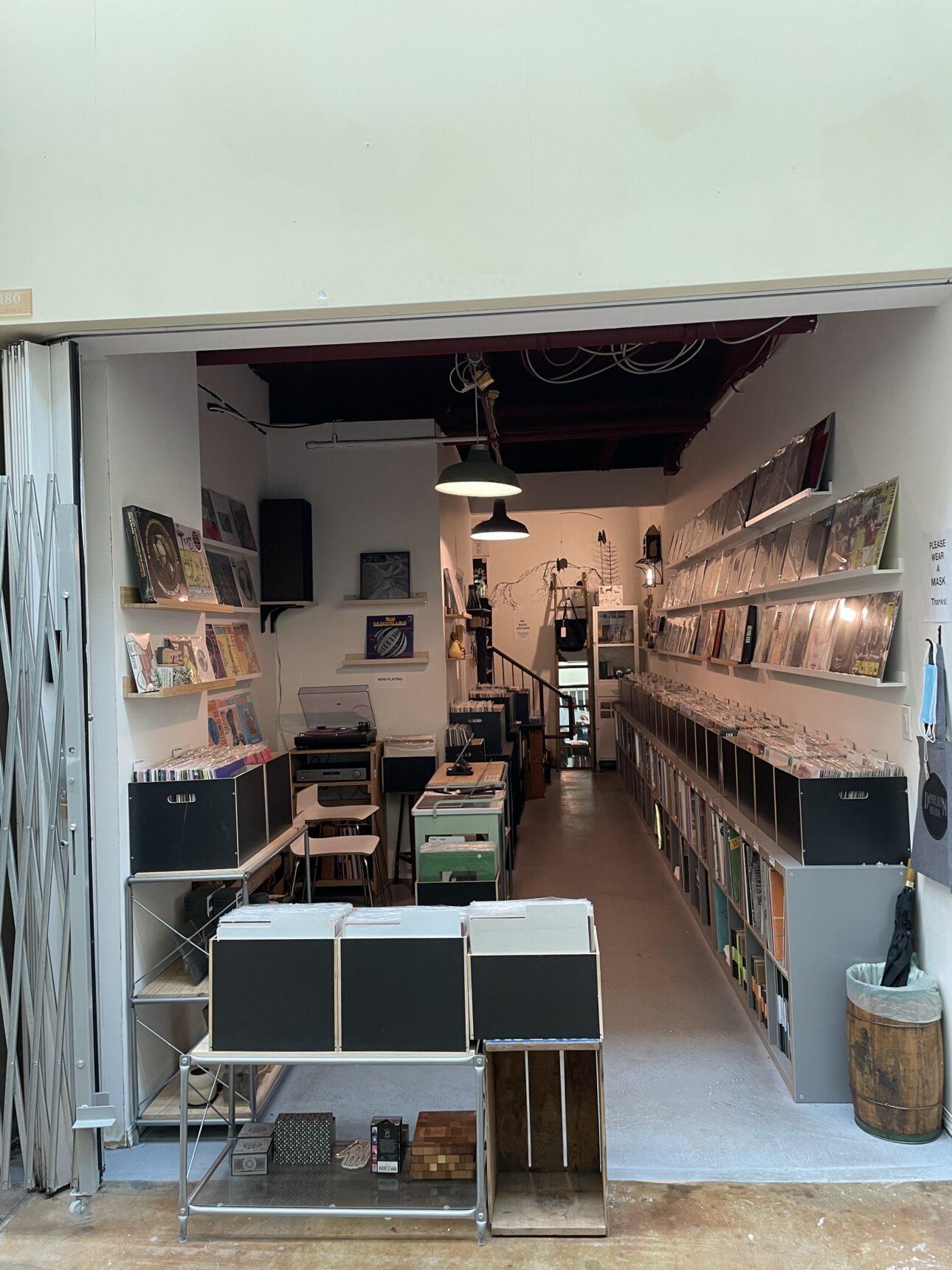

SPIN: Can you tell me about the consequences of the fire, and how people from the community helped you open your new location?
Jeff Knowlton: The fire had a devastating effect on our business—we lost almost everything. But support from the community was amazing. Right after the fire Aaron Schubert started a GoFundMe, and it was a lifeline for us. We had some insurance, but unfortunately it didn’t cover everything and took months to settle. The help we got from the community was really what got us through that time period.
Many people showed up to help us get everything out, and neighbors offered us space to keep things while we sorted through the damages. Chris from Pulp Fiction, Macey from Budgie’s, and Ray and Kate of the Pool Hall [now the Pleasant] were all immensely helpful. One person, Mark Szabo, was there every day. We were able to salvage a few things, but many, many records were destroyed.
After a few months, we were at a crossroads to decide if we were going to do something else, or reopen and start from scratch. The overwhelming support we received from the community inspired us to bring Dandelion back.
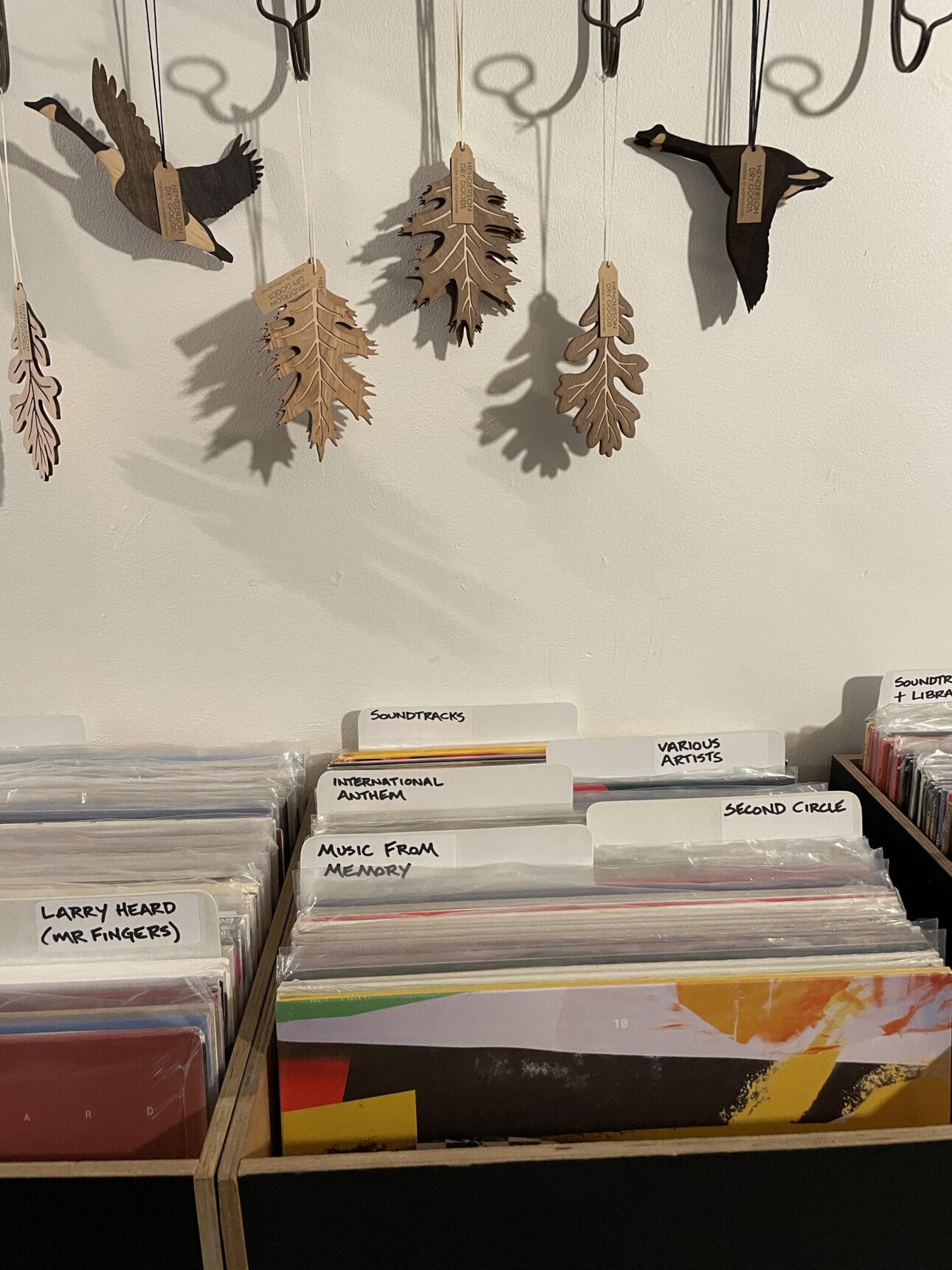

How does operating the store out of your current location differ from where you used to be? Have your clientele or the things you sell changed?
Our new space in Chinatown is much smaller, but we didn’t need a lot of space when we first opened as we lost most of our stock. We decided to focus entirely on records as we had a lot of regular record customers who were very supportive of the new space. We also don’t get as much walk-by in the new space, so the relationships we built over the years are key to keeping the business going.
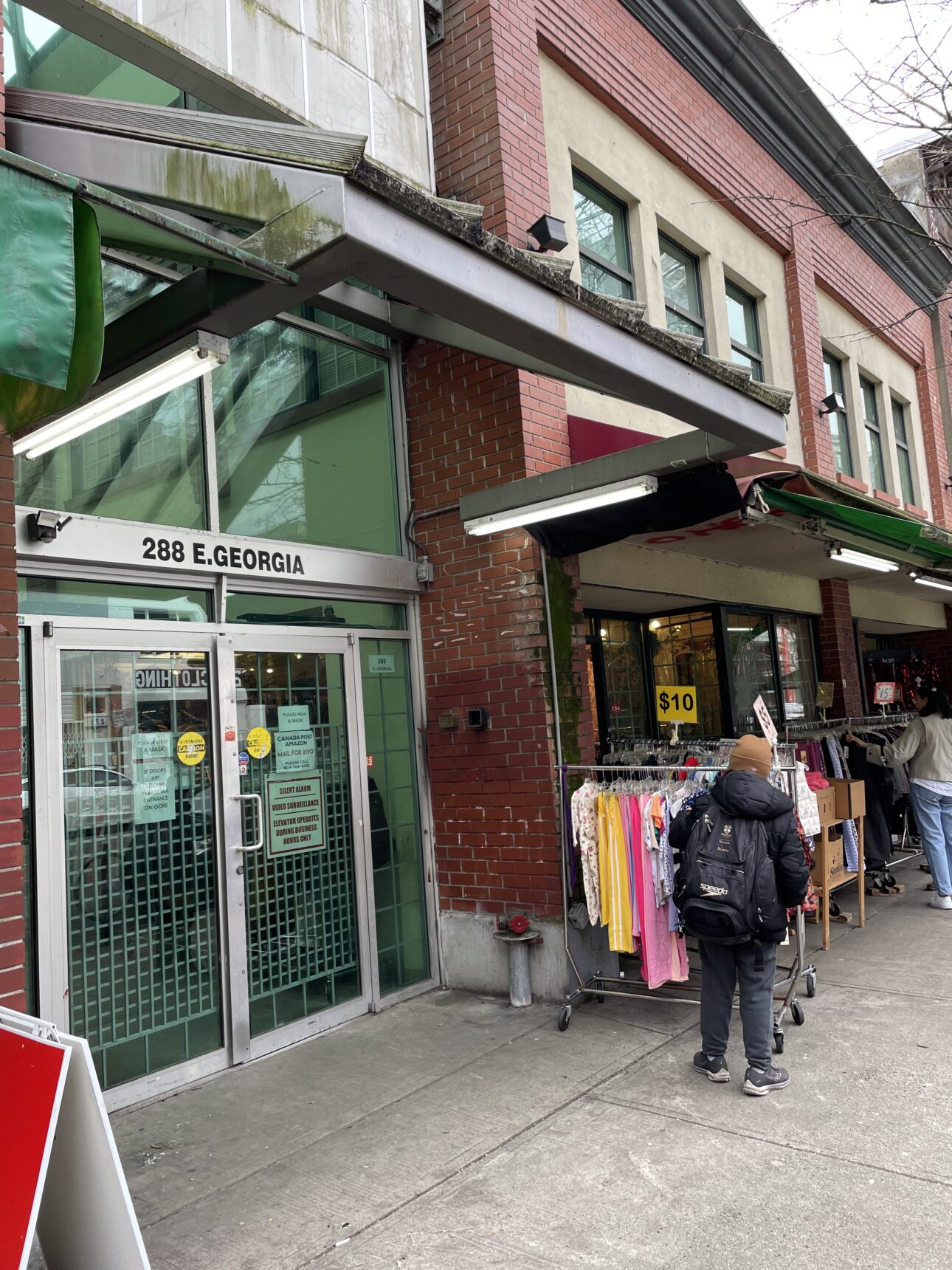

What inspired your $10 sale section?
For me that is the worst section of the shop—but still a joy. Many records were donated to us after the fire, and a few small stacks survived with only minor damage. Together, those became the discount zone upstairs. Many happy people have been able to buy things there for less than we could from our wholesalers.
How do you acquire records these days?
We still buy collections whenever we can, but that’s definitely happening less and less over the years. We deal with wholesalers worldwide and cast a wide net to try to bring in the best in every field. Music is bigger than a human lifespan. Bigger than all of us, really. But we listen as much as possible to everything coming down the pike and snag some if we like what we hear. I don’t think we’re motivated to buy or sell in particular—we’re motivated to build a life where music can be at the center of things.
